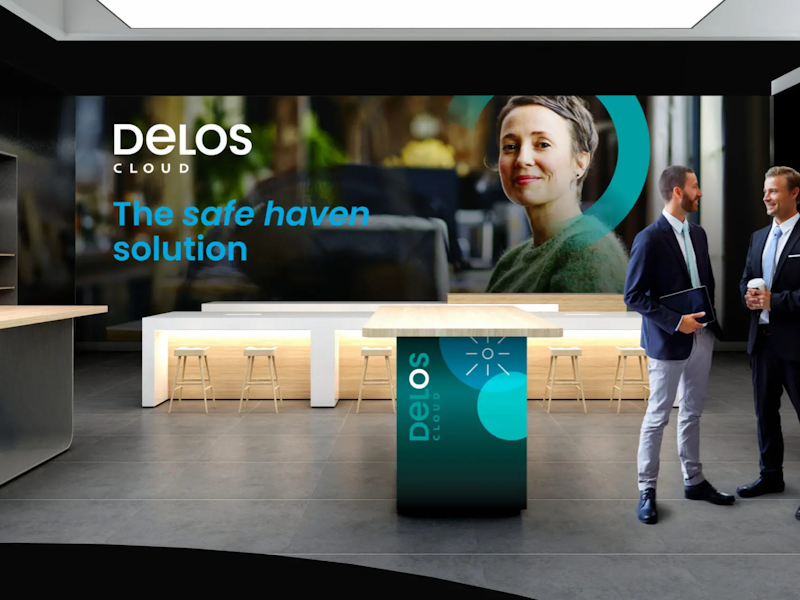The Delos Cloud provides Microsoft Azure services and Microsoft Office 365 in a fully sovereign manner, not operated by Microsoft. Through that, they are meeting the Cloud Platform Requirements for the public sector laid out by the Bundesamt für Sicherheit in der Informationstechnik (BSI).
Characteristics of Delos Cloud
Delos Cloud maintains full sovereignity on a
- Technical Level
- data sovereignity: all customer data remains on German soil.
- Telemetry and other traffic flowing out of the cloud is monitored and controlled by the BSI.
- Physically separate from Microsoft and Microsoft Azure.
- Fully autonomous. Continues to work without software updates in crisis situations.
- Operational Level
- Independence from Microsoft: cloud operations is without interference of Microsoft.
- Cloud is operated based on IT security, data protection, and confidentiality regulations by cleared personell in Germany.
- Updates are audited and controlled by authorities.
- Legal Level
- Delos Cloud is a German legal entity with a German parent company.
- German law is applicable and German courts have jurisdiction.
Target Customers
Delos Cloud targets primarily public sector in Germany. Their common denominator is that they must meet the sovereignity requirements laid out by the BSI.
Available Azure Services
A list of all services, including the available SKUs is available here: Delos Cloud Azure Services. These are:
- API Management
- App Configuration
- App Service
- Application Gateway
- Azure AI Search
- Azure Backup
- Azure Cache for Redis
- Azure Container Instances
- Azure Container Registry
- Azure Cosmos DB
- Azure Data Explorer
- Azure Data Factory
- Azure Database for MySQL
- Azure Database for PostgreSQL
- Azure DDoS protection
- Azure Disk Encryption
- Azure DNS
- Azure ExpressRoute
- Azure Firewall
- Azure Firewall Manager
- Azure Front Door
- Azure Functions
- Azure Kubernetes Service
- Azure Monitor
- Azure NAT Gateway
- Azure Policy
- Azure Private Link
- Azure Resource Manager
- Azure Route Server
- Azure Service Fabric
- Azure Site Recovery
- Azure SQL Database
- Azure SQL Managed Instance
- Azure Stream Analytics
- Azure Web Application Firewall
- Bandwidth
- Batch
- Cloud Shell
- Content Delivery Network
- Event Grid
- Event Hubs
- HDInsight
- IP Services
- Key Vault
- Load Balancer
- Logic Apps
- Microsoft Cost Management
- Microsoft Entra Domain Services
- Microsoft Entra ID
- Network Watcher
- Notification Hubs
- Power BI
- Service Bus
- SQL Server on Virtual Machine
- Storage Accounts
- Traffic Manager
- Virtual Machine Scale Sets
- Virtual Machines
- Virtual Network
- Virtual WAN
- VPN Gateway
Conclusion
Delos Cloud targets public sector in Germany and is not intended to be used by normal businesses or private users (as of now).
Competition around public sector is intense. Microsoft has its own sovereign offering with high flexibility, and Google and AWS are trying to enter the market as well with their own sovereign offerings.
A competitive advantage of Delos Cloud can be the very narrow target customer focus and the fact that large parts of the public sector in Germany are locked into Microsoft products to a large degree.
It remains to be seen how well the Delos Cloud offering is received by the market and how well it performs in operation. There are some inherent difficulties, especially in the relationship to Microsoft. Will Microsoft personell be involved in troubleshooting? If yes, what are the implications on sovereignity? If no, can Delos Cloud staff operate a complex Azure software stack? How do up-to-date will the Delos Cloud software be if it is not integrated in the standard Microsoft software development lifecycle and must undergo audits by authorities before going live?
Resources
- Delos Cloud official website: Delos Cloud
- Controversy around Delos Cloud: Zoff um Delos
- First Delos Cloud services to be launched in the first half of 2025: Delos Cloud – Erste Dienste für 2025 geplant



